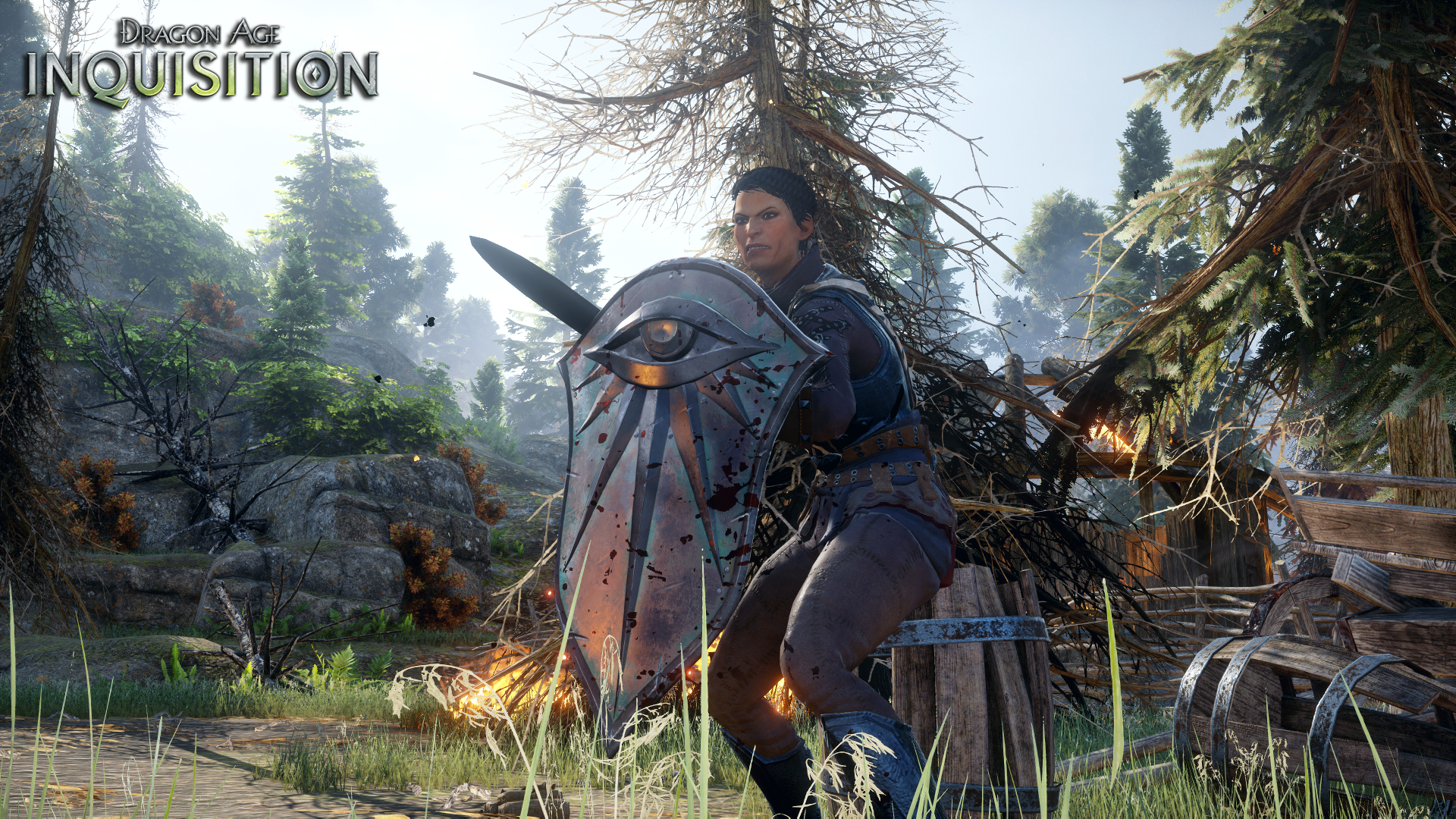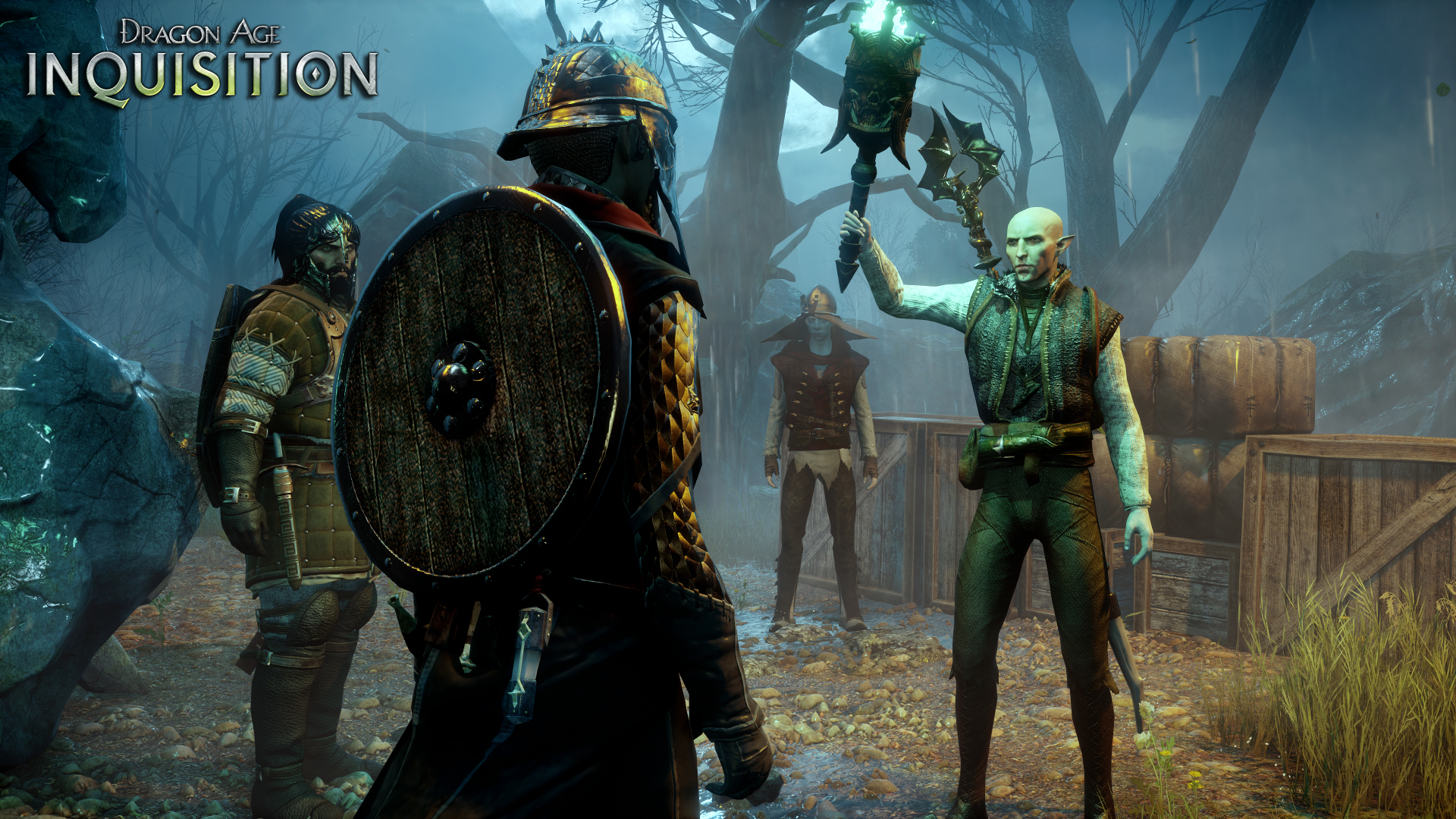
PC Gamer: One of the things I’ve always enjoyed about Bioware RPGs is that they champion diversity and they’re quite mature and adult. Do you think in the times we’re operating in it’s even more important to have that kind of diversity of characters?
MD: I think it’s important for people to play the characters that they want to play, that we give choice and that we try to allow escapism—or whatever the game is trying to accomplish, in our case it usually is some sort of escapism—for as broad of an audience as possible. A lot of this comes down to choice as opposed to forcing something upon the player
PC Gamer: Do you see this as a reboot for the whole series, because you can come in without a really deep knowledge of the lore of the previous games?
MD: I certainly hope so. That’s certainly the goal: that this can be an entry point for people. A lot of the way the prologue is structured is with the hope that it’s understandable to someone who doesn’t have a lot of understanding of the Dragon Ages before this one. It’s not a true reboot, because we’re still respecting people’s choices from before and the events of Dragon Age: Origins and Dragon Age 2 did occur. From a pure storytelling perspective it would be very convenient to be able to ignore Dragon Age: Origins, because it leaves a bunch of divergent hooks all over the place. I mean, we’re due for a dwarven civil war pretty soon based upon on some of the epilogues of Dragon Age: Origins.
I think gamers are getting more sophisticated, looking for a more nuanced experience, and I think role-playing games are already ready to fulfill that desire.
PC Gamer: It’s interesting experiencing a game like this at an event where you just get a little distilled chunk of it to try the systems out. Do you think that’s an inherent issue with RPGsin that you’re asked early on to choose a character class, and you can kind of assume certain things based on the usual RPG tropes—Warrior is going to run in and tank, mage is going to sit back and blast—but you don’t get to try before you buy unless you want to reroll after 10 hours because you decide you don’t like it?
MD: I think that is actually definitely one of the things that we have to deal with in this space. Not just for character choices. Actually it takes a long time playing the game to understand it. Getting invested in the characters… I mean the entire basis of a roleplaying game is that you care about the story to some degree. It takes a little bit of time, everything takes a little bit of time. We’re expecting you to understand more complicated gameplay systems. You need to realise ‘oh, I decided to play a mage and I actually don’t like a mage’, and that takes a little bit of time to figure out. So yeah, absolutely, it’s actually something that we’ve consistently seen with this game: people often like it the first day and love it the second day.
PC Gamer: I was watching one guy play who was hurtling around like he was in Bayonetta and I was thinking ‘huh, maybe I should have played that class,’ but I suppose being able to switch between party members gives you a taste of each.
The biggest gaming news, reviews and hardware deals
Keep up to date with the most important stories and the best deals, as picked by the PC Gamer team.
MD: Absolutely, that is one of the goals of having a controllable party. We’re one of very few games that does that anymore. Effectively the entire party is more like your character. As opposed to balancing the game against one sort of omni-character, we balance against this party of four that can have a different flavor within itself.

PC Gamer: Do you think we’re in a golden age of computer RPGs? You’ve got games like Pillars of Eternity coming, and Wasteland 2 just came out—it feels like a pretty fertile period for the genre.
MD: I think we’re seeing two things. With games like Wasteland 2, I think we’re seeing sort of a recapturing of that old school, top-down role-playing game from the late Nineties. I think, as well, something that’s happened pretty much every time the console generations turned over is we’ve seen the rise of a new dominant genre. Like, shooters were not a dominant genre a generation ago, they became dominant in what is now the last gen. And I think we’re about to see that again. I mean, granted, I’m not exactly unbiased on this topic—but I think we may see this be RPGs moment again.
What you’ve seen before is right around the generation switch a game arrived that sort of signaled that change. Halo 1 signalled shooters on consoles. I think Skyrim, Far Cry 3 and those kinds of games signalled big, open world games. Not necessarily RPG games.
PC Gamer: And do you think that’s just a function of the increased power being available to make those worlds, or do you think it’s people’s tastes shifting fundamentally?
MD: I think it’s hard to say, because certainly when you look back and you dissect it you can certainly explain it as a pure technology thing—because it was racing games before it was shooters, and from a technical perspective it’s a little bit easier to make a good looking racing game than it is to make a good looking shooter. So the hardware got better and suddenly shooters got out in front. It’s even more difficult to make a good looking role-playing game. I don’t think it’s purely technology, but I think it’s easy to tell that story. I think gamers are getting more sophisticated, looking for a more nuanced experience I guess, and I think role-playing games are already ready to fulfill that desire.
With over two decades covering videogames, Tim has been there from the beginning. In his case, that meant playing Elite in 'co-op' on a BBC Micro (one player uses the movement keys, the other shoots) until his parents finally caved and bought an Amstrad CPC 6128. These days, when not steering the good ship PC Gamer, Tim spends his time complaining that all Priest mains in Hearthstone are degenerates and raiding in Destiny 2. He's almost certainly doing one of these right now.


